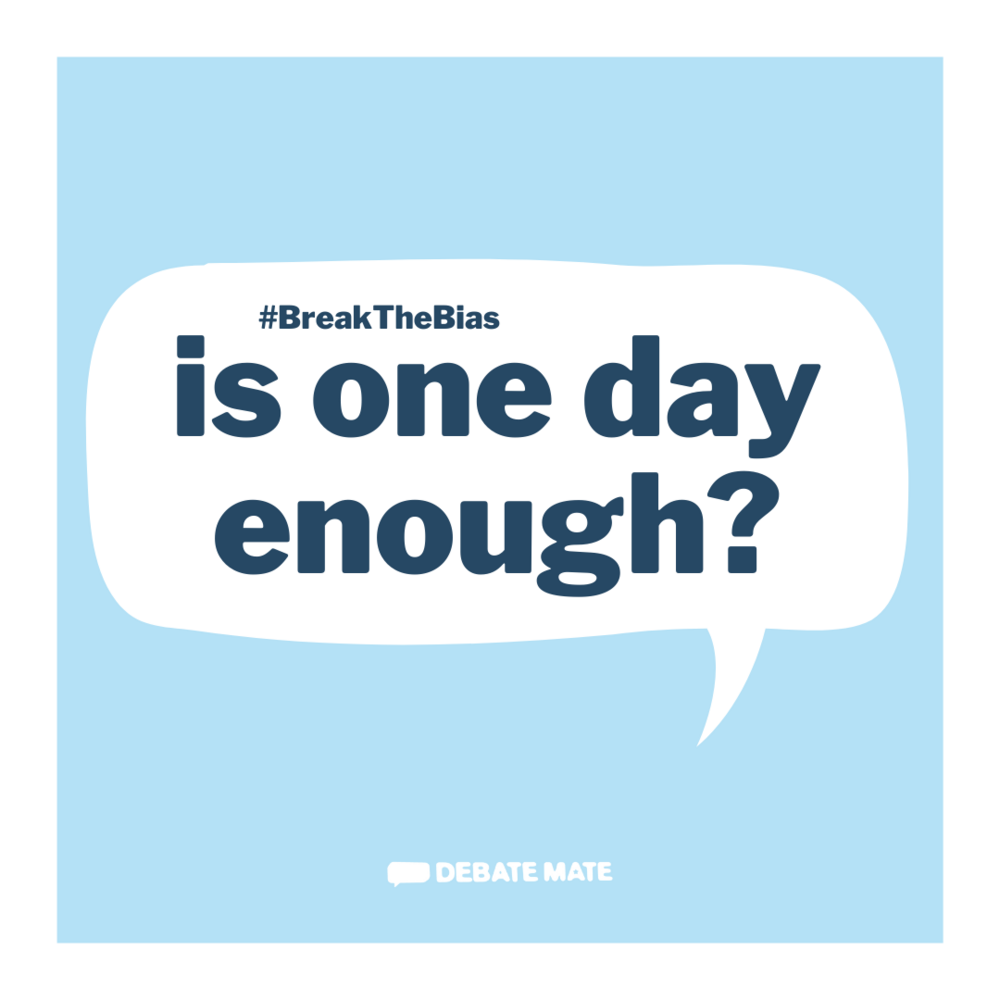There was a lot of content online for International Women’s Day on Monday, and we want to take a little time to reflect on what we think are the really key aspects of this important day. Putting the day in historical and societal context is really useful to understand why we continue to recognise and celebrate this day.
“The story of women’s struggle for equality belongs to no single feminist, nor to any one organisation, but to the collective efforts of all who care about human rights.” – Gloria Steinem, feminist, journalist and activist
There was a lot of content online for International Women’s Day on Monday, and we want to take a little time to reflect on what we think are the really key aspects of this important day. Putting the day in historical and societal context is really useful to understand why we continue to recognise and celebrate this day.
What is it?
International Women’s Day is a day dedicated to celebrating the social, economic, cultural and political achievements of girls and women, and highlights the obstacles that they continue to face. The world is moving towards achieving gender equality for all genders, but we must continue to call for equal opportunities for all women. It’s really important to acknowledge that, globally, women continue to experience violence and oppression as a result of their gender. Certain industries continue to have low numbers of women because they are seen as incompatible with motherhood. COVID-19 has disproportionately impacted women, and we must see this reflected in the pandemic recovery process. It’s not an exclusionary day – in fact, it’s the opposite. It’s about coming together to fight sexism, transphobia, classism, ableism, xenophobia and racism. It’s a day about community, strength and unity to fight for a more fair and equitable future.
The history
The first Women’s Day took place in the US in 1909, following a march by 15,000 women through New York City to demand better working conditions. This spread throughout the globe in the following years, with calls to build support for achieving universal suffrage for women. The first UN International Women’s Day took place in 1975, with worked to gain “a new global dimension for women in developed and developing countries alike.”
This year’s theme
The #ChooseToChallenge theme is an important one, calling for everyone to call out gender bias and inequality. We must collectively challenge injustice and question stereotypes in all of their forms, to help forge a more inclusive world. As well as this, we should come together to celebrate achievements. In particular, we want to celebrate the achievement of:
1. Mothers
On this day and every day, we want to celebrate mothers. Particularly over the pandemic, when 18% of mothers have had to reduce their working hours as a result of COVID-19
[1], we want to recognise the incredible work that mothers do every day, which often goes unrecognised.
2. Female frontline workers
Women have made up 65% of COVID-19 frontline workers in the UK.
[2] British Professor Sarah Gilbert led the team to develop the AstraZeneca vaccine, and Dr Kizzmekia Corbett, an African American immunologist in Maryland, was a core part of the team that worked with Modern to develop two COVID-19 vaccines.
3. Women in finance
Women make up 17% of the financial services industry in the UK.
[3] Globally, they make up 12% of all industry leaders.
4. Women in construction
Women make up 12% of the construction industry in the UK.
[4]
5. Female lawyers
Women make up 49% of lawyers in firms in the UK, and 33% of all partners.
[5]
6. Female train drivers
Women make up 5% of all of Britain’s train drivers.
[6]
This year we are committing to #ChooseToChallenge injustice, to celebrate the achievements and raise the visibility of women who are thriving across professional spaces.
Sign your children up to our virtual debating clubs today to equip them with the communication skills needed to challenge inequality and call for a more fair and inclusive world.
https://www.debatematevirtual.com/
[1] TUC “Working Mums: Paying the Price” (2021)
[2] Hye Jin Rho et. al. “A Basic Demographic Profile of Workers in Frontline Industries” (2020)
[3] FCA, “Gender Diversity in UK Financial Services” (2019)
[4] Catalyst,
Quick Take: Women in Male-Dominated Industries and Occupations (February 5, 2020)
[5] SRA “How diverse is the legal profession?” (2020)
